 |
 |
View Basket |
|
|
|
Dialogues In these times, these unsettling days when life is becoming smaller and smaller, let us dare to come back to the dialogical roots of Philosophy. Indeed, Philosophy teaches us that rational endeauvour is an undertaking that we do together. The emergence of conceptual thinking, the constitution of knowledge and meaning are the result of a plural act of generosity towards the perspectives of the other" Prof. Dr. Shahid Rahman Professor for Logic and Epistemology at the University of Lille, and at the CNRS-laboratory UMR 8163: "Savoirs, Textes Langage", France. Editors: Shahid Rahman (Univ. Lille 3, UMR : 8163 (STL)) Nicolas Clerbout (Universidade de Valparaíso, Chile) Matthieu Fontaine (University of Lisbon, CFCUL) For more than two decades now the scientific community has seen a growing number of important results in the emerging field centered on the interactions between game theory, logic dialogical framework and pragmatist approaches to meaning and knowledge. We feel that it is time for the philosopher to assess in which ways those results bear on the fundamental questions of the philosophy of logic and philosophy of sciences. In particular, what insight have we gained on such central notions such as meaning, knowledge, truth, validity, proof, proposition, form and formality, logicality. We would thus like to open a series of books that we conceive as a gathering place where philosophical ideas concerning those topics can be expressed, scrutinised and confronted. We therefore invite submissions related to all aspects of the philosophical consequences of the interface dialogues, games, logic and sciences. More specific topics include (but are not limited to): game-theoretical and game semantics, dialogical logic, ludics, Ehrenfeucht-Fraïssé games, game-theoretical notions of logical form, game-theoretical notion of proposition, logical games between semantics and proof theory, games and modal logic, dialogical approaches to philosophy and/or didactic of sciences. Submission details: Authors are strongly encouraged to use LaTeX, using the usual ’article’ document class. Acceptable formats are (in order of preference): LaTeX (.tex), gereral text formats (.rtf and .txt), OpenOffice (.odt), Word (.doc). For proposals contact Shahid Rahman with the subject matter GLD-proposal. Editorial Board:
|
| © 2005–2025 College Publications / VFH webmaster |









